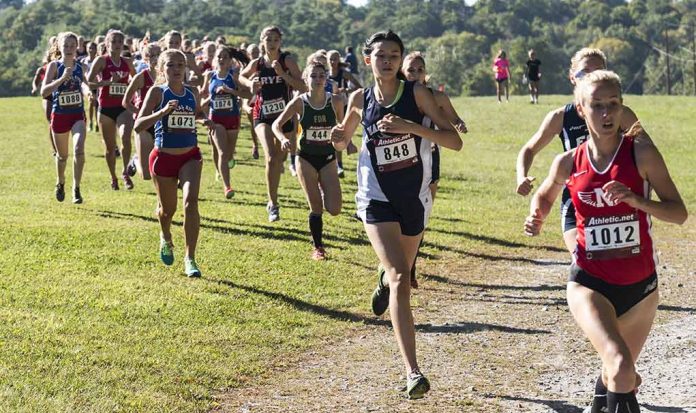
In an outrageous turn of events, a male high school student identifying as Katie Spencer clinched victory in a girls’ pole vaulting competition in Maine, sparking controversy and political backlash.
Top Takeaways
- A biological male student won a girls’ pole vaulting competition in Maine, defying a federal order.
- The victory has drawn criticism from women’s sports advocates and political figures.
- Maine’s decision to allow the athlete to compete violates President Trump’s recent Executive Order.
- The incident has reignited debates about fairness and integrity in women’s sports.
- Critics argue that allowing biological males to compete against females compromises safety and fairness.
Controversial Victory Sparks Outrage
A recent high school pole vaulting competition in Maine has become the center of a heated debate after a biological male student, identifying as Katie Spencer, won the girls’ event. The victory occurred just days after the state refused to enforce President Trump’s Executive Order aimed at separating sports by biological gender. This incident has reignited discussions about fairness in women’s sports and the implementation of federal policies at the state level.
The Maine Principals’ Association’s decision to allow Spencer to compete in the girls’ category has drawn sharp criticism from various quarters. Women’s sports advocates, political figures, and concerned parents have voiced their opposition to what they see as a violation of fair play and the integrity of female athletics.
Maine just handed a GIRLS’ state pole vault title to a male athlete competing in the girls’ division. This is beyond ridiculous & an insult to every girl who’s worked their butt off to earn that title. It’s time to stop rewarding this unfairness.
Pull the federal funding… https://t.co/pGwatZxqx6
— Kaitlynn Wheeler (@WheelerKaitlynn) February 18, 2025
Political Backlash and Calls for Action
Maine State Representative Laurel Libby has been particularly vocal in her criticism of the decision. She stated, “The decision by the Maine Principals’ Association to continue allowing male athletes to compete against female athletes in school athletic competitions is outrageous. Not only does their decision violate President Trump’s February 5 Executive Order but it jeopardizes the safety and privacy of female athletes, all while allowing male athletes to take medals, trophies, and podium spots away from women, effectively erasing them.”
Libby has called for swift action from the Trump administration to ensure that female athletes in Maine can compete on a level playing field. The controversy highlights the ongoing tension between state-level decisions and federal policies, particularly in areas concerning gender identity and sports.
From 5th to 1st with this one simple trick!!! pic.twitter.com/cgcxsM6kiv
— Steve Robinson (@BigSteve207) February 18, 2025
The Impact on Women’s Sports
The incident has raised significant concerns about the future of women’s sports. “Katie,” who previously competed as a mid-level athlete in boys’ pole vaulting, jumped 11 feet in the girls’ competition, which is close to the girls’ record of 11 feet, one inch. This performance was eight inches higher than the second-place female competitor, but would have only placed 10th among boys in the same competition.
The American Parents’ Coalition has expressed strong dissatisfaction with the decision, emphasizing the need for a level playing field for female athletes. They argue that such decisions not only undermine fairness but also go against parental expectations and President Trump’s Executive Order protecting girls’ sports.
“Parents across Maine—and the country—are fed up with being ignored while their daughters are forced to compete against biological males. The Maine Principals’ Association’s decision isn’t just unfair; it’s an affront to every parent who expects their child to have a level playing field and is at odds with President Trump’s Executive Order protecting girls’ sports,” said the American Parents’ Coalition in a statement.
Looking Ahead
As the debate continues, the future of allowing transgender-identifying males to compete against girls in Maine schools remains uncertain. The risk of losing federal funding due to non-compliance with the Executive Order adds another layer of complexity to the situation. With no comment from the Maine Principals’ Association, many are left wondering how this issue will be resolved and what it means for the future of women’s sports in the state and potentially across the nation.






















